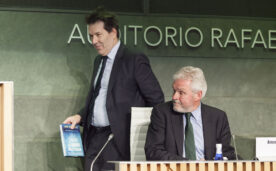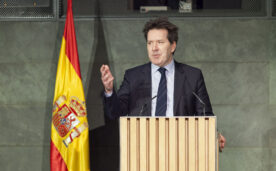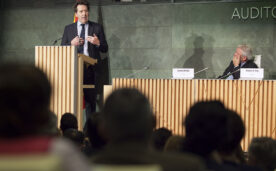On 14 November, the Rafael del Pino Foundation organised the Stephen D. King Keynote Lecture entitled "When the Money Runs Out: The End of Western Affluence".
Stephen D. King is Chief Economist at HSBC Group and global head of economics and asset management analysis. Since 2001, he has written a weekly column for The Independent and contributes to the Financial Times blog "The A-list", one of the most influential publications in the field of international finance. He is a member of the European Central Bank Shadow Council and the Financial Times Economist's Forum.
In addition to his career as an economist, Stephen D. King is an author of works on international economics, including "Losing Control: The Emerging Threats to Western Prosperity" and "When the Money Runs Out".
In his latest book, of the same title as the lecture to be given at the Foundation, Stephen King analyses the current situation of the developed economies: "it is not just the end of an era of affluence. We have made promises to ourselves that we can only fulfil through economic expansion. The future benefits we expect (pensions, health care, social security, for example) may be greater than tomorrow's resources. And if we get to that point, what promises will be broken and who will lose out? The lessons of history offer clear evidence and a plan that includes painful but necessary steps towards a stable future.







